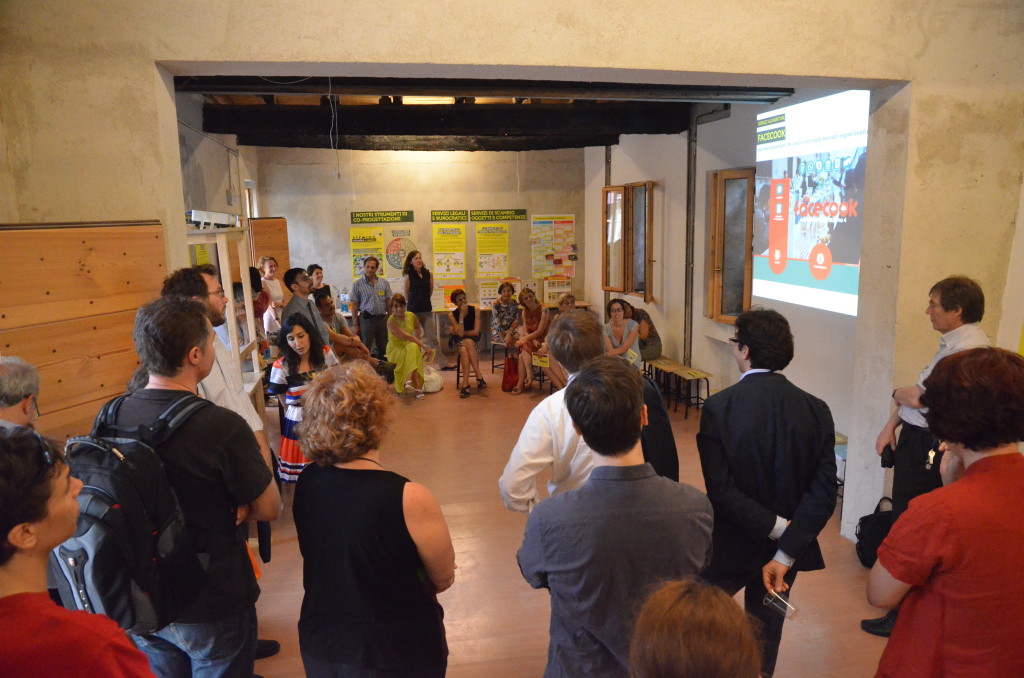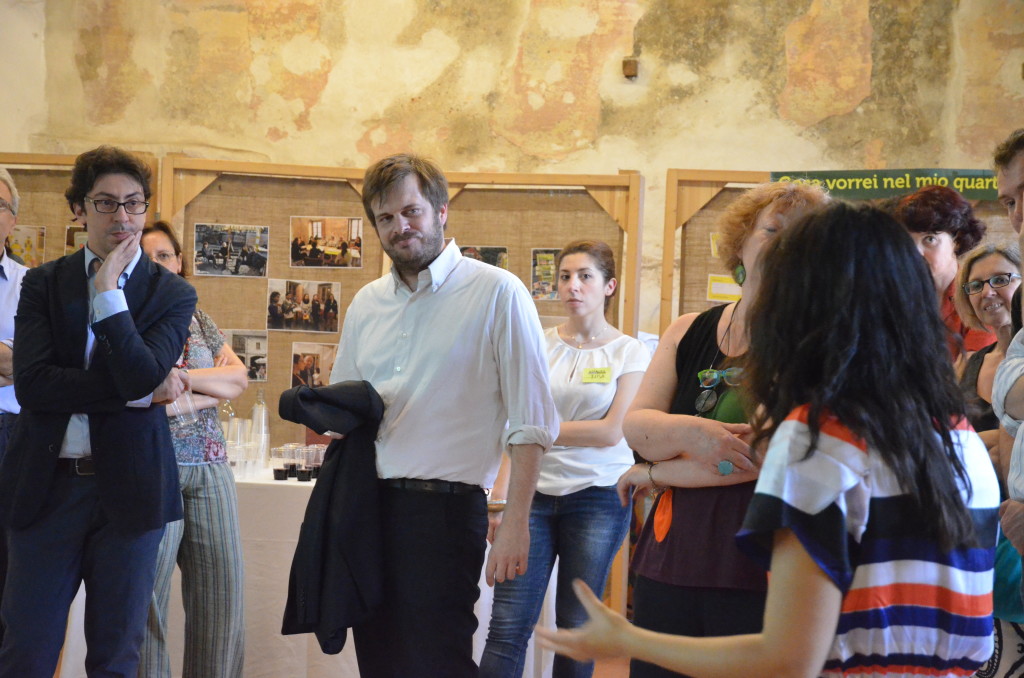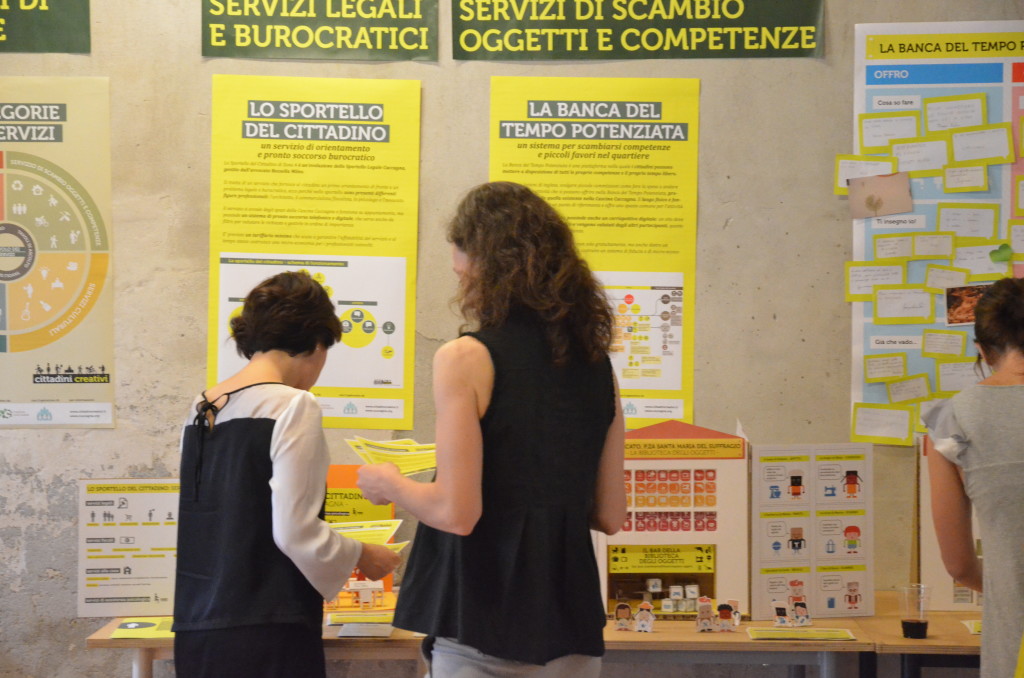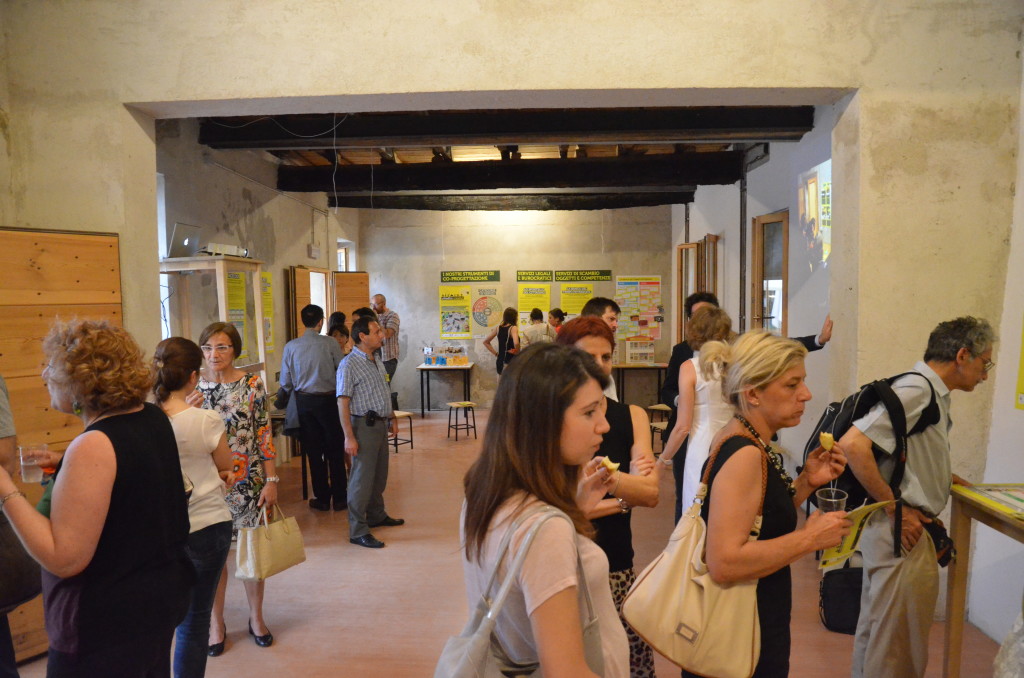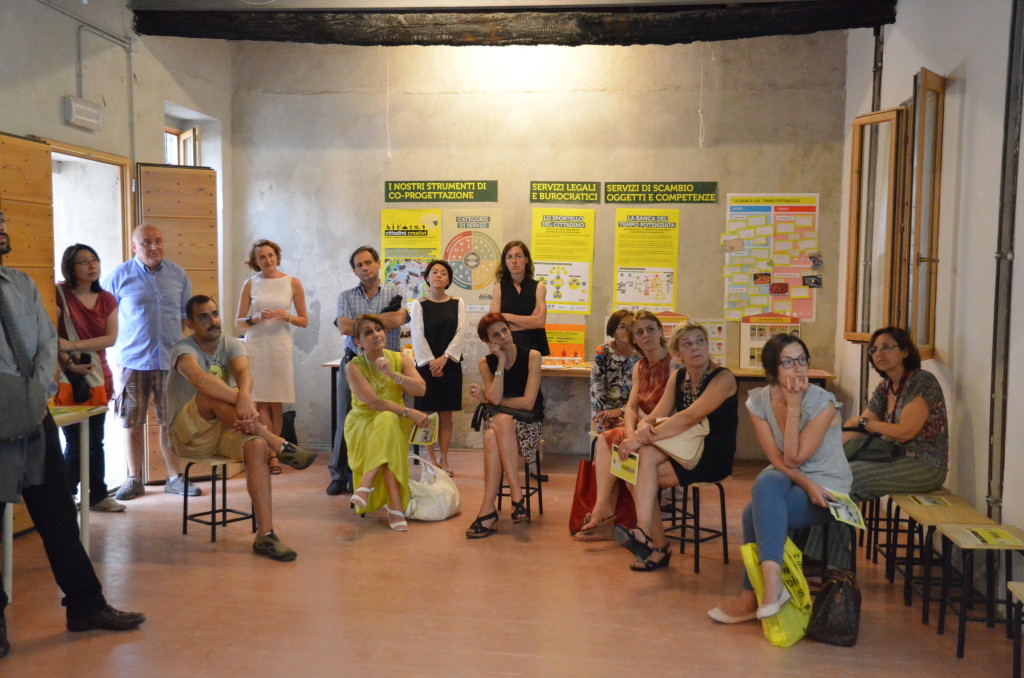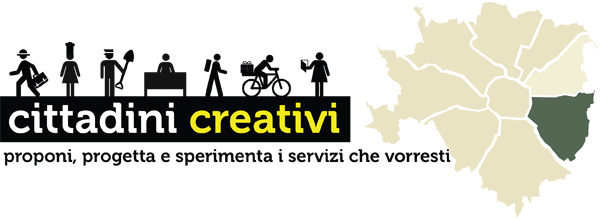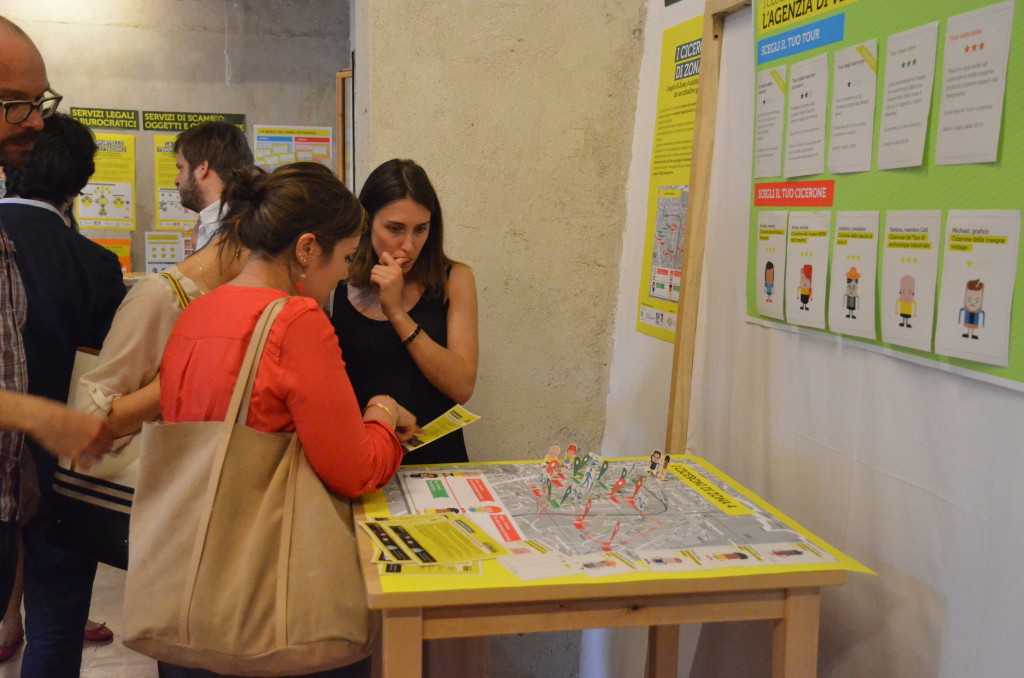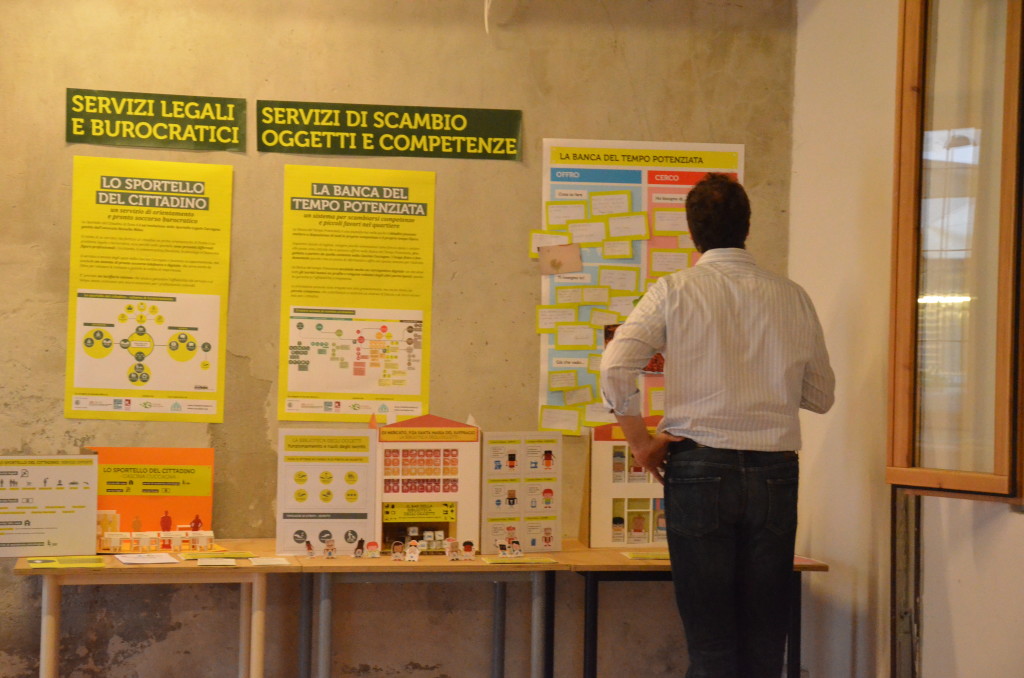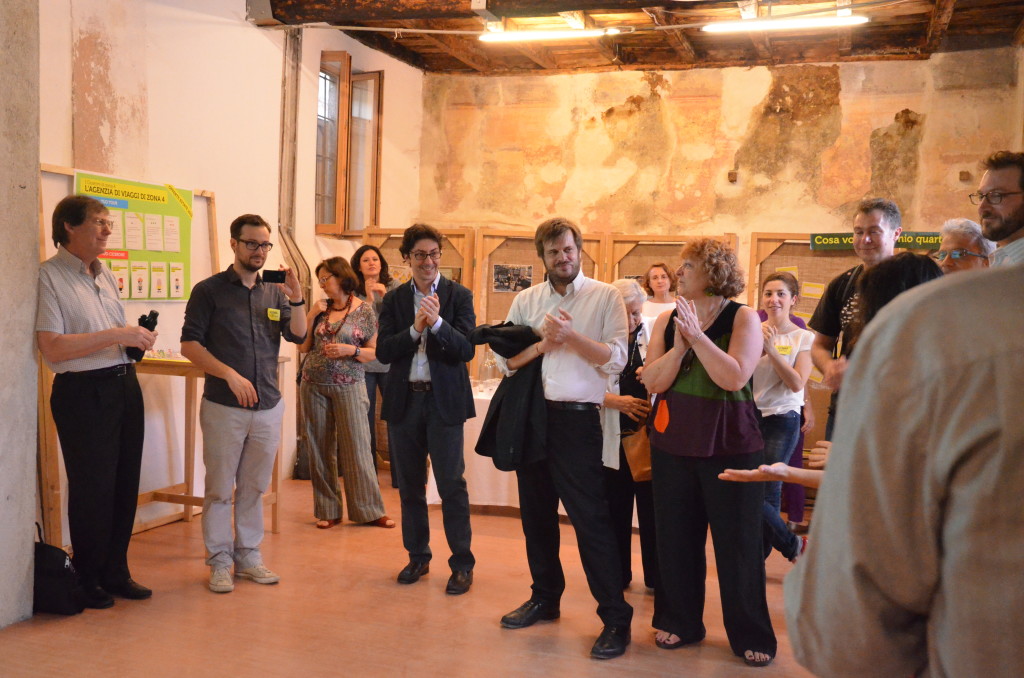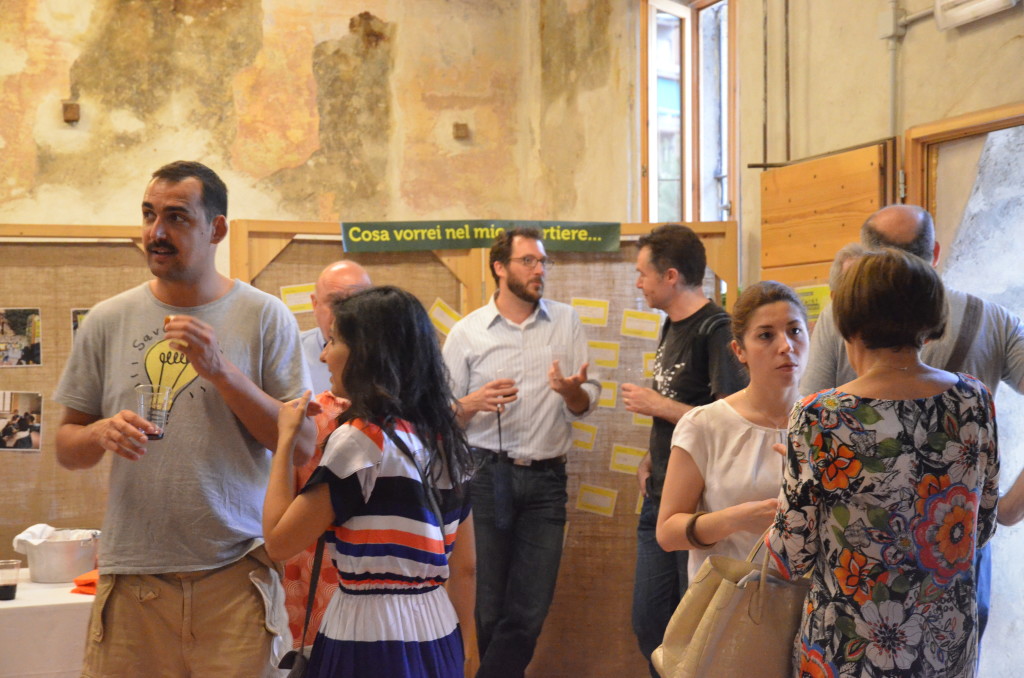Giovedì 20 giugno si è conclusa la sperimentazione di Cittadini Creativi con la presentazione dei servizi sviluppati durante 4 mesi di incontri tra designer e abitanti di Zona 4. La presentazione è stata anche un’occasione per allestire una piccola mostra per raccontare il percorso di co-progettazione.
I progetti sono dei veri e propri prototipi di servizio, alcuni dei quali già in fase pilota, altri in attesa di supporto, spazi, infrastrutture.
Alla presentazione hanno partecipato semplici cittadini e rappresentanti delle istituzioni come Pierfrancesco Majorino, assessore alle Politiche Sociali e Rossella Traversa della Commissione Cultura del Consiglio di Zona 4. Vi erano inoltre vari altri funzionari del comune di Milano e alcuni rappresentanti del Dipartimento di Design del Politecnico di Milano.
I servizi mostrati sono stati suddivisi in 4 aree:
1. SERVIZI DI SCAMBIO OGGETTI E COMPETENZE
La Banca del tempo potenziata – un sistema per scambiarsi competenze e piccoli favori nel quartiere
La Biblioteca degli Oggetti – uno spazio fisico e virtuale per scambiare oggetti nel quartiere
2. SERVIZI LEGALI E BUROCRATICI
Lo Sportello del Cittadino - un servizio di orientamento e pronto soccorso burocratico
3. SERVIZI ALIMENTARI
Facecook – una rete alimentare che unisce ristoranti, mercati, negozi locali e cittadini.
La rete di distribuzione locale – una rete di distribuzione alternativa fra la zona 4 e il Parco Agricolo Sud
4. SERVIZI CULTURALI
I Ciceroni di zona 4 – i luoghi di Zona 4 adottati e spiegati da un cittadino-guida
Alcuni di questi progetti, sono già in fase avanzata, come lo Sportello del Cittadino, che partirà alla Cascina Cuccagna da settembre 2013, alcuni sono in cerca di uno spazio, come la Biblioteca degli Oggetti (l’ex mercato di Piazza Santa Maria del Suffragio?), altri costituiscono un’implementazione di un servizio già esistente come la Banca del Tempo potenziata.
I risultati della sperimentazione saranno organizzati e approfonditi nei prossimi mesi, ed in particolare si studierà la possibilità di creare una sorta di agenzia di design dei servizi semi-pubblica, come naturale continuazione dell’esperienza di Cittadini Creativi.
Presentation of Creative Citizens’ projects to the Municipality and to local residents
On June 20th the final presentation of Creative Citizens took place, to show all the projects realized by designers and citizens to the Municipality of Milan and to local residents. The presentation was also implemented by an exhibition to show the co-design path lasted for 4 months.
The results are real service-prototypes, some of them already in a test-phase, others in search of support, spaces and infrastructures.
A group of citizens and of representatives of the institutions attended the presentation, as Pierfrancesco Majorino, Council member for Social Policies at the Municipality of Milan and Rossella Traversa, member of the Culture Commission of the Committee of Zone 4. Other public officials and representatives of the Design Department (Politecnico di Milano) attended the exhibition.
Services have been divided into 4 clusters:
1. SERVICES FOR EXCHANGING GOODS AND SKILLS
The augmented time bank – a system to exchange skills and small tasks in the neighbourhood
The Objects’ Library – a physical and digital space to exchange goods in the neighbourhood
2. LEGAL AND BUREAUCRATIC SERVICES
The Citizen’ s Desk – a service for an orientation and bureaucratic first aid
3. FOOD SERVICES
Facecook – a food network connecting restaurants, markets, shops and local residents.
The Local Distribution System - an alternative distribution network to connect Zone 4 with the Agricultural Park South Milan area.
4. CULTURAL SERVICES
Zona 4 Ciceros – places of Zone 4 adopted and explained by a citizen-guide.
Some of these projects are already at an advanced stage, as the Citizen’s Desk, which will start at the Cascina Cuccagna from September 2013, some of them are looking for a space, such as the Objects’ Library (the former market of Santa Maria del Suffragio?) and others constitute an implementation of an existing service, such as the Augmented Time Bank.
The results of the experimentation will be organized and deepened in the coming months, and in particular we are exploring the possibility of creating a sort of semi-public agency for service design, as a natural continuation of the experience of Creative Citizens.